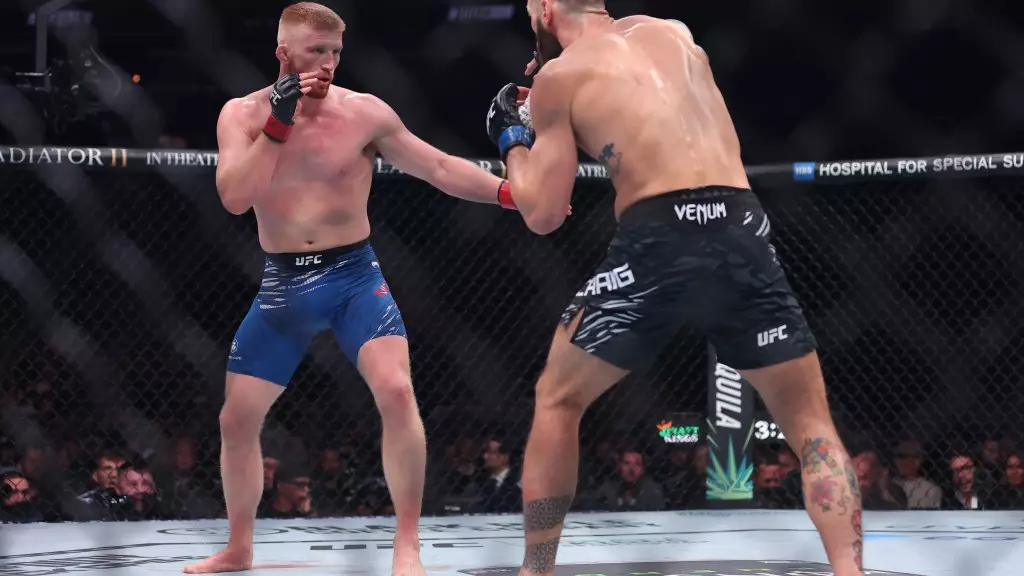Chael Sonnen, a prominent figure in mixed martial arts, has voiced strong discontent regarding Bo Nickal’s performance during UFC 309. Despite Nickal securing a victory against Paul Craig and maintaining his undefeated record, the fight at Madison Square Garden in New York was met with a mixed reception from the audience, including boos and chants labeling him as “overrated.” This article delves into Sonnen’s critique, the implications of Nickal’s fight strategy, and what this means for the rising star’s trajectory in the UFC.
The crux of Sonnen’s criticism lies in what he perceives as Nickal’s overly cautious approach during the match. Although Nickal (7-0 MMA, 4-0 UFC) managed to outstrike Craig, he notably refrained from employing his wrestling skills—an area where he typically excels. Nevertheless, his corner opted not to encourage him to utilize this strength, leading to a lack of takedown attempts throughout the fight. This raises an essential question about how fighters balance their own game plans with the need to adapt to their opponents.
Sonnen draws an intriguing comparison between Nickal’s strategy and that of legendary fighter Georges St-Pierre, arguing that successful fighters do not base their strategies solely on their opponents’ capabilities. St-Pierre often utilized his wrestling prowess regardless of the opponent’s resistance, a tactic that increased his dominance in the octagon. Sonnen’s assertion suggests that Nickal might be hampered by an adherence to a game plan that does not play to his strengths. The expectation that fighters should adapt is integral; however, Sonnen’s critique emphasizes that effective fighters possess the ability to impose their skill sets onto their opponents.
Sonnen posits that Nickal’s corner bears significant responsibility for the fight’s outcome. He argues that had they urged Nickal to leverage his background as a four-time world champion in wrestling, he could have overwhelmed Craig with grappling. This opens up larger discussions within mixed martial arts about the dynamic between a fighter and their coaching team. The effective feedback and confidence instilled by trainers can markedly affect a fighter’s performance under the pressure of competition.
While Nickal himself referred to his performance as “picture-perfect,” the discord between his self-assessment and the audience’s reaction suggests a disconnect that he will need to bridge. As his career progresses, understanding and honing his strategic abilities in conjunction with his natural talents will be crucial for him to earn respect in the octagon. Chael Sonnen’s insights serve as a valuable critique, highlighting not only the pivotal role that a well-structured game plan and corner support play in a fighter’s success but also the broader implications for the directions that young athletes like Nickal take in their careers. The lessons learned from this bout may ultimately shape Nickal’s future endeavors within the competitive landscape of the UFC.

